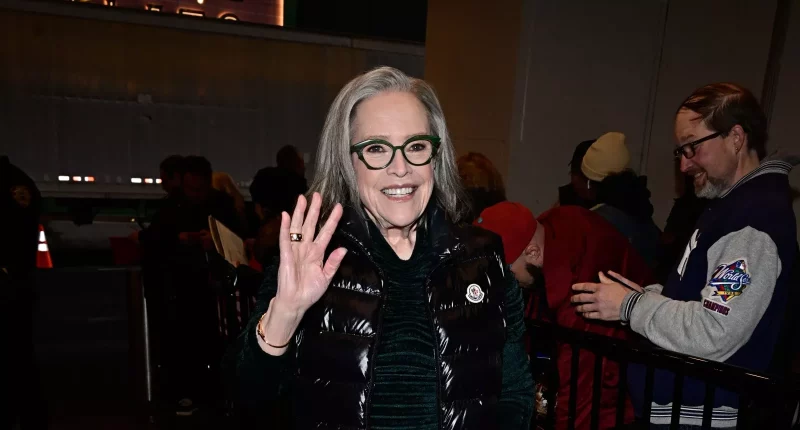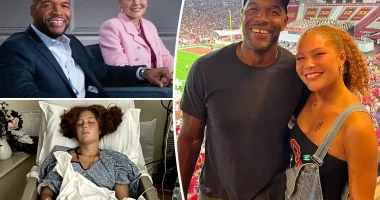Kathy Bates on Life After Cancer, a celebrated actress known for her powerful performances, recently opened up about her decision to forgo reconstructive surgery following her double mastectomy due to breast cancer. In a candid discussion on the podcast “MeSsy” with hosts Christina Applegate and Jamie-Lynn Sigler, Bates shared insights that resonate deeply with many women navigating similar journeys. Her story not only reflects personal choice but also highlights the broader conversation surrounding body image and identity after cancer treatment.

Kathy Bates’ Journey with Cancer
Kathy Bates was diagnosed with breast cancer at the age of 64 in 2012, a significant moment that led her to undergo a double mastectomy. This was not her first encounter with cancer; she had previously battled ovarian cancer in 2003, which adds layers to her understanding of health challenges. The decision to have a mastectomy stemmed from a family history of cancer, as both her mother and niece had faced similar diagnoses. This context is crucial as it underscores the emotional weight behind such medical decisions, particularly for someone with a legacy of health issues in their family.
Kathy Bates Reveals Why She Loves Life Without Breast Reconstruction
Bates articulated several reasons for opting out of reconstruction surgery, emphasizing her age and relationship status as pivotal factors. At 76 years old, she felt that undergoing additional surgery was unnecessary and burdensome. “I wasn’t in a relationship and didn’t foresee being in one, so I questioned the need for it,” she stated during the podcast episode. This perspective sheds light on how personal circumstances can heavily influence medical choices, particularly in older women who may feel less societal pressure regarding physical appearance.

Moreover, Bates candidly described her previous physical discomfort associated with having large breasts, each weighing approximately ten pounds before removal. She expressed a sense of liberation in not having breasts anymore, stating, “I kind of enjoy not having breasts… it’s strange” 24. This sentiment reflects a significant shift in how some women perceive their bodies post-mastectomy—moving from societal expectations to personal comfort and freedom.
Life After Mastectomy
Post-mastectomy, Bates found innovative ways to adapt her wardrobe to her new body. While filming the television drama “Matlock,” costume designers created a custom camisole that provided comfort without compromising on style. This garment featured built-in padding that offered a flattering silhouette without the heaviness of traditional prosthetics. Bates noted that these solutions allowed her to feel confident and comfortable, enhancing her experience both on and off-set.
The emotional journey following such a life-altering decision is profound. Bates’ choice has empowered her to embrace life without the constraints she previously felt from her breast size. Her story serves as an inspiration for many who may struggle with similar decisions about their bodies after cancer treatment.
Broader Implications for Cancer Survivors
Bates’ experience highlights the critical importance of personal choice in the recovery process after cancer treatment. Each survivor’s journey is unique, influenced by various factors including age, health history, and personal relationships. Conversations around body image are essential as they encourage women to prioritize their health over societal standards of beauty. As Bates suggested, women should focus on what makes them feel good rather than conforming to external expectations25.
Moreover, this dialogue can foster community support among survivors, allowing them to share experiences and advice on navigating life after cancer. By promoting openness about their choices—whether it be reconstruction or embracing their new bodies—women can help others feel less isolated in their journeys.
Conclusion
Kathy Bates’ candid reflections on choosing not to undergo reconstruction after breast cancer serves as a powerful reminder of the importance of personal agency in health decisions. Her story resonates not only within the realm of cancer recovery but also speaks volumes about self-acceptance and empowerment. For women facing similar choices, Bates’ journey offers encouragement: embrace your body as it is and prioritize your well-being above all else. As conversations around these topics continue to evolve, they pave the way for greater understanding and support within the community of cancer survivors.
Don’t Miss | Jennifer Hudson’s Hallmark Christmas Collaboration: Hear Her Joyful Songs!







